Leicester heart surgery decision 'death knell' for regional paediatrics
- Published
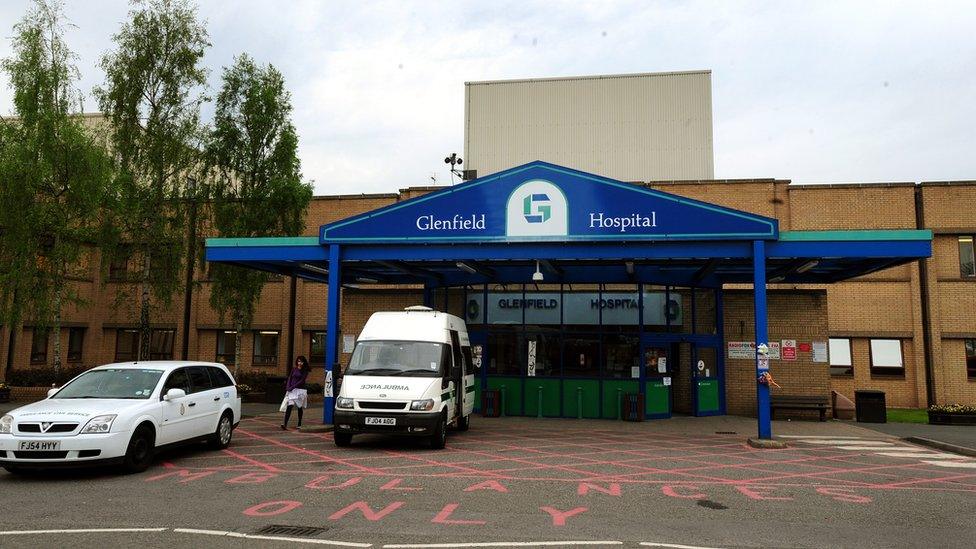
NHS England said it will hold a consultation into ending children's heart surgery at Glenfield Hospital in Leicester
The end of children's heart surgery in Leicester could be the "death of paediatric services" in the East Midlands, the unit's former head said.
NHS England is to stop the service at Glenfield Hospital because it says it does not meet the required standards.
Giles Peek, now a professor of paediatric heart surgery in New York, said Glenfield supported every hospital in the region.
Campaigners, who thought the unit's future was safe, vowed to fight on.
NHS England's decision came as a shock to health bosses in Leicester after it was announced last year that the service would move to a new children's hospital in the city.
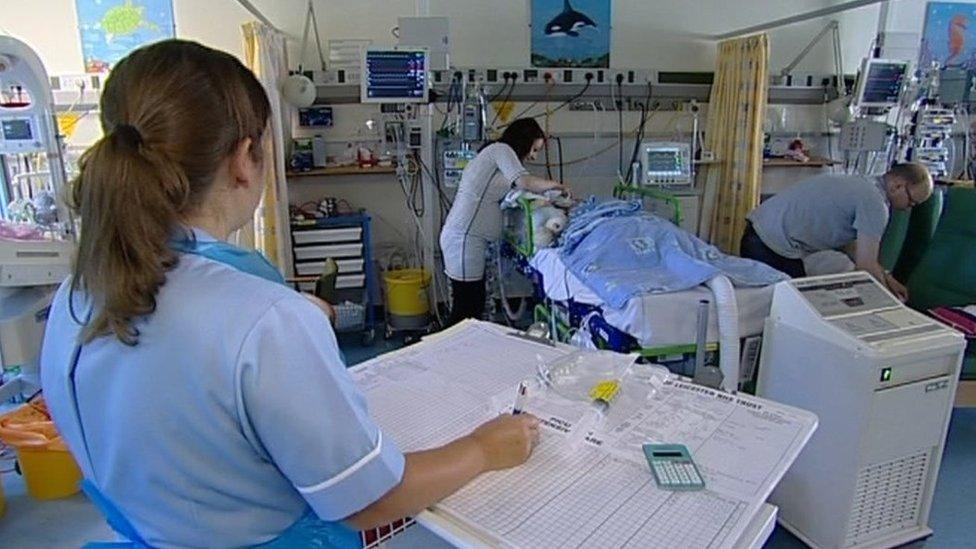
The trust that runs Leicester hospitals said stopping children's heart surgery in the city would have an impact on the intensive care unit
Glenfield Hospital was told it does not meet the standards set in last year's New Congenital Heart Disease Review, external and is "extremely unlikely to be able to do so" in future.
Mr Peek, who has campaigned in the past to save the Glenfield unit, said: "I think this is going to be almost a death knell now for paediatric services in the whole of the East Midlands.
"The services at Glenfield support specialist paediatric services at the [Leicester] Royal Infirmary and in all hospitals in the East Midlands."
Mr Peek also questioned the impact on other services provided by Glenfield Hospital, particularly Ecmo, external - an advanced heart and lung machine.
'Things will be worse'
Leicester is the largest Ecmo centre in Europe and carries out about half of all procedures on children in the UK, Mr Peek said, so the NHS England announcement is likely to have national consequences.
John Adler, chief executive at University Hospitals of Leicester (UHL) - the trust that runs Glenfield - said ending children's heart surgery was also likely to affect its intensive care unit.
"There is a national shortage of beds for children in intensive care," he said. "We have a paediatric intensive care associated with the heart surgery and that is very likely to be destabilised by the announcement of these changes.
"We are quite clear that things will be made worse."
Dr Jonathan Fielden, a director of NHS England, said while it would mean some patients travelling further than they previously needed to, the care provided would be safer in the long-term.
'Risking your child's life'
"As a responsible commissioner - before any safety or quality issues arise - we need to act with providers and make sure we plan care for patients in the right place," he said.
"We do not believe that [Leicester] has the numbers currently or likely into the future to sustain the high quality that we need."
Ashleigh Woods, whose six-year-old son Jack has had open-heart surgery four times at Glenfield, said: "We nearly lost him two years ago and he will need a heart transplant eventually.
"This has come as a massive shock. Where do we go? Birmingham is such a long way to go, it's risking your child's life."
The report also details plans to stop some complicated procedures in Nottingham such as repairing holes in the heart or widening arteries.
Andrew Staniforth, head of service for cardiology at Nottingham University Hospitals NHS Trust, said the changes were not an "indication of unsafe practice".
"While today's decision is disappointing, we will continue to work with NHS England to ensure services are sustainable and meet the needs of the people we serve."
- Published8 July 2016
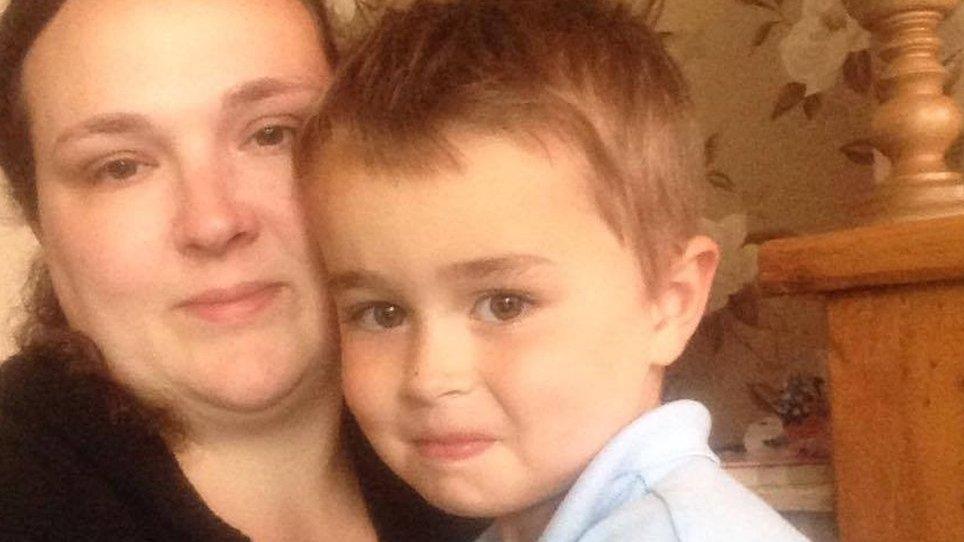
- Published6 July 2016
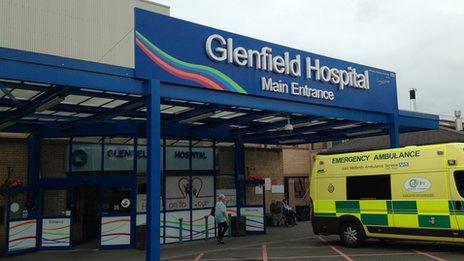
- Published12 June 2013
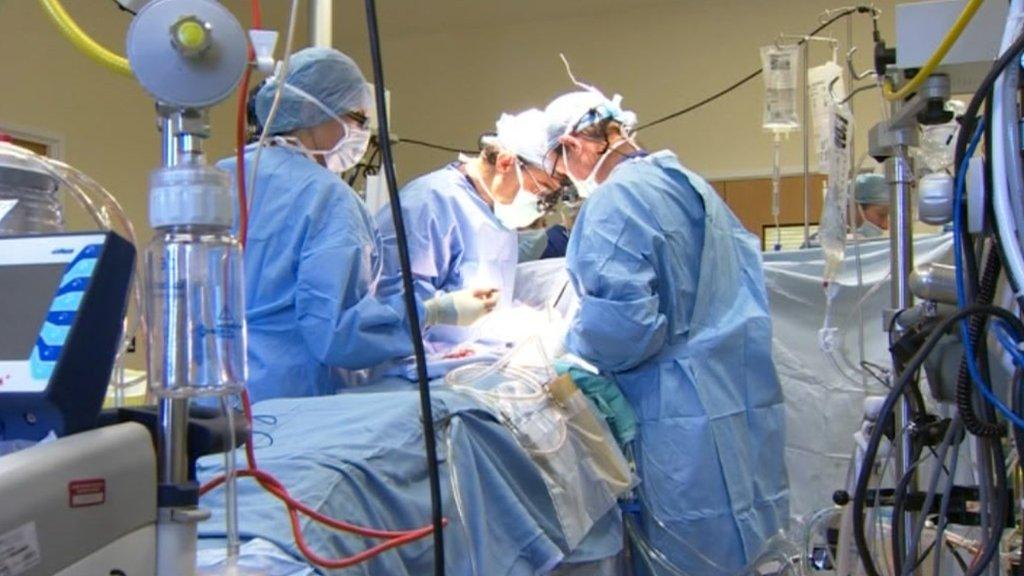
- Published7 March 2013

- Published11 February 2013
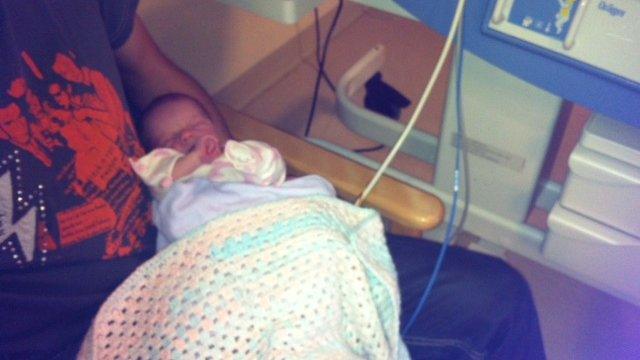
- Published16 November 2012
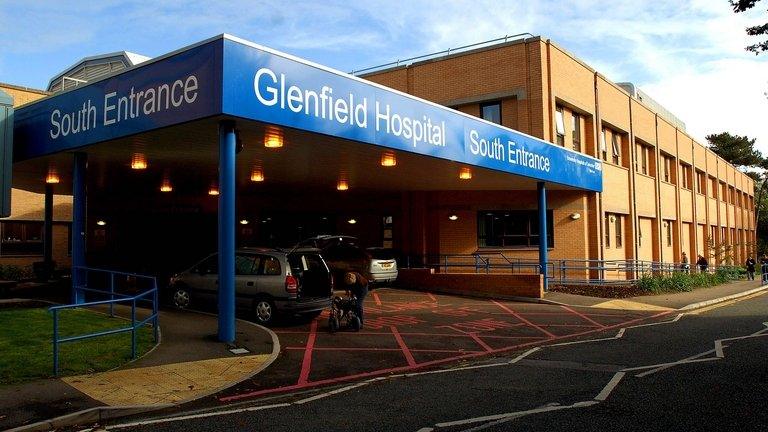
- Published23 October 2012
